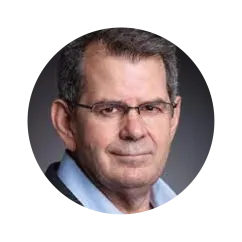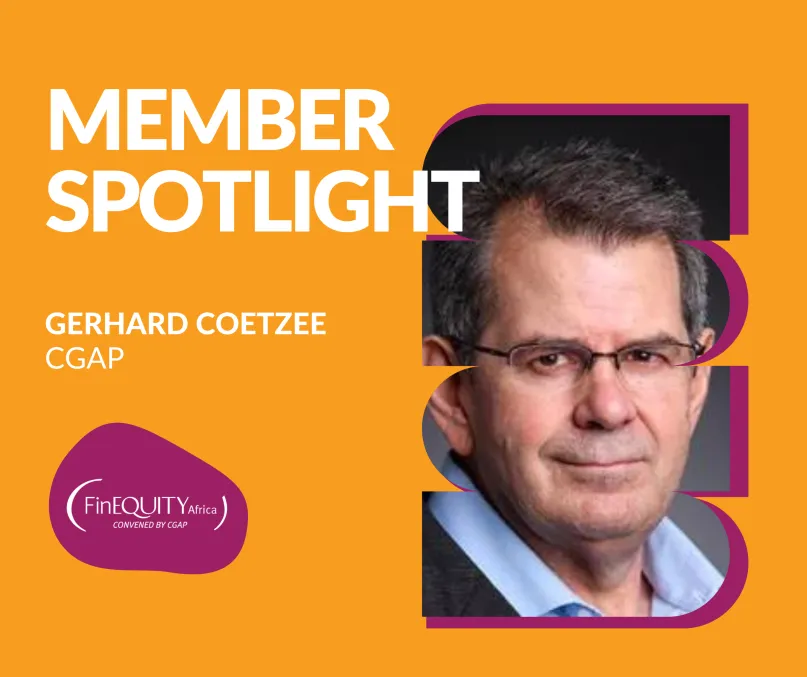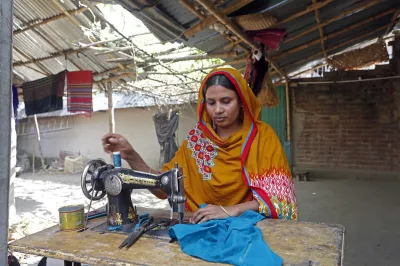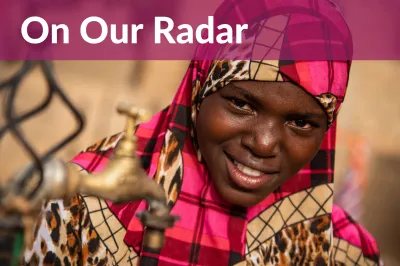FinEquity Africa Member Spotlight: Gerhard Coetzee

Gerhard Coetzee leads the Fostering a Responsible Enabling Ecosystem outcome area at CGAP. He is responsible for work on the regulatory frontier and financial inclusion, responsible digital finance ecosystems, and gender-focused guidance for policymakers and regulators. Gerhard is an Extraordinary Professor at the University of Stellenbosch Business School. Before CGAP, he was Head of Inclusive Banking at Absa Bank (South Africa), responsible for its digital money proposition. Gerhard was the founder and Director of the Centre for Inclusive Banking in Africa and a Professor of Agricultural Economics at the University of Pretoria. He was a technical lead and CEO of a consulting firm (owned by DAI). He had several senior roles focused on policy at the Development Bank of Southern Africa. Three highlights of his career were his role as Secretary of a Presidential Commission of Inquiry into Access to Financial Services in Rural Areas of South Africa, commissioned by President Nelson Mandela; acting as the Head of Inclusive Banking in ABSA and developing a branchless banking offering for 5 million customers; and founding and running the Centre for Inclusive Banking in Africa. Gerhard holds a Ph.D. from the University of Pretoria.

The FinEquity Africa team sat down with Gerhard Coetzee, Lead Customer Value Team at CGAP, to discuss his superpower, the customer-centric approach to women's financial inclusion, and his top priorities for FinEquity's new regional community of practice.
FinEquity Africa: Tell us a bit about yourself, something fun about you, something that might surprise people about you, and any superpowers you might have.
Coetzee: I hail from the Western Cape, South Africa. I wanted to become a vet but was too squeamish when encountering blood! The next option was to be an agricultural economist, as my base interest was farming, food systems, and rural development. I entered the inclusive finance world through agricultural finance for small farmers.
I am a trained meteorologist. My spouse and best friend of 45 years, a psychologist, always jokes that meteorology and economics have a lot in common. It includes much guessing!
My superpower is my respect for people from all walks of life. I invest in networks without any expectations of a return. I believe in building relationships that last, not transactional hit-and-run approaches. I believe strongly that there is always a co-created path where all our interests meet, rather than operating in a polarized way at the extremes.
FinEquity Africa: What drew you to women’s financial inclusion? What has kept you going? And how did you end up at CGAP?
Coetzee: When I did my fieldwork for my Masters in 1987, I interviewed 400 small farmers, and nearly half were women. I realized that women faced far more odds in terms of rights and agency. However, when I spoke to different groups, I saw that women had more substantial leadership roles in some groups than others. That interested me, and I tried to compare and see why. One observation was that men followed their council and ideas where women had leadership roles rather than opposing or diminishing them. It showed that men and women had to be part of the effort in the quest for gender equity.
I looked into this and started to investigate women’s inclusion efforts that, at that time, were primarily gender-neutral efforts. At the same time, I heard many good intentions but did not see much traction. Over my career, there was always an ebb and flow in efforts to improve gender equity and women’s inclusion. When I joined CGAP, I did not see much happening, but about five years ago, we gained traction, and now I am proud of all of our gender work.
FinEquity Africa: What have been some of the most impactful findings you’ve come across in your career? What about in the last few years?
Coetzee: Let me single out one – the customer-centric approach. I learned this early in my career. The financial sector is very product orientated, and it was my quest to see if I could influence this in a more customer-centric direction. It is still a long road, but this notion, which is as old as time, is gaining traction and is the foundation of our work on women’s inclusion.
Always start with the women on the ground – interact, understand, and that will empower you to offer bespoke solutions. Co-create, do not feel pressured to find answers by yourself. Our work on norms is telling and offers evidence of such an approach. Our work on young women is the same.
One remaining challenge is to connect realities on the ground with the right policies. Too often, policymakers do not understand the link between policy levers and realities on the ground. Good policies can only have an impact through good implementation and making things work. The whole change management approach required for success is often ignored or assumed. There is much work still needed.
FinEquity Africa: What are some of your top priorities for FinEquity Africa in 2023 and your expectations for FinEquity Africa as a Technical Advisory Group member?
Coetzee: My top priorities are traction, membership expansion, and a culture of animation and activity. Keep it applied and watch out for too many high-level statements that lead to little change.
My expectation is to see the creation of a vibrant community of practice that moves us towards not only closing the gender gap in financial inclusion, but that leads to empowering women across the continent. The result should go beyond inclusive finance to inclusive societies and a partnership approach toward women’s empowerment and a vibrant and thriving continent.



Dear colleagues,
I am very happy to read this interview, and the insightful points, including: 1) men and women had to be part of the effort in the quest for gender equity. This is an important caution against some efforts which only target women. Such approaches could be less effective (or even may end up counterproductive) without engaging men, and working on gender-transformative'' interventions; as some would like to emphasize, BOTH men and women are victims of the prevailing patriarchal culture …. 2) financial sector is still very product orientated. In many contexts, especially in rural Africa, where service providers face little competition, they still enjoy huge demand for whatever product they offer. While central banks are actively monitoring the financial performance of institutions (esp. MFIs, banks), they have little role on products’ impact on clients. Given that in many contexts in Africa service providers are free to set interest rate on credit (unlike in other contexts, like India), could we advocate for policy measures requiring service providers to set aside some portion of the ‘’profit’’ that they are enjoying on research on refining products, to meet the needs and interest of clients?
My earlier interview at FinEquity could be of interest for some of you:
https://www.findevgateway.org/finequity/interview/2023/05/member-spotli…
Regards, Getaneh
Leave a comment